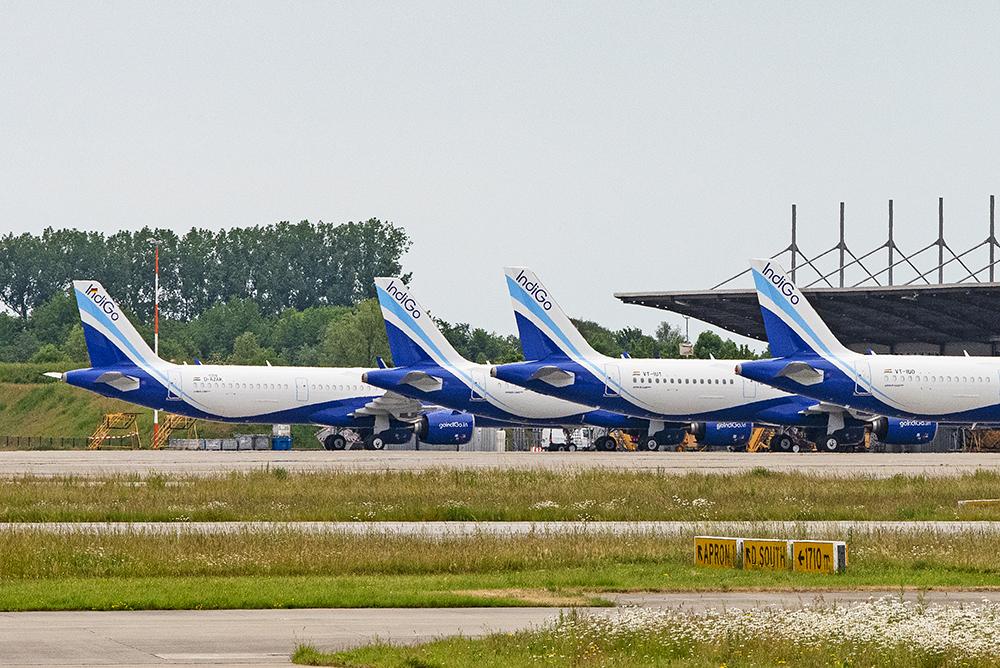
Indian low-cost carrier IndiGo plans to reinforce its in-house technical capabilities to accommodate its fleet expansion, which is projected to hover around 600 aircraft by 2030.
Currently, all domestic line maintenance activities on its Airbus A320 family and ATR 72-600s are carried out in-house, and most of its international line maintenance and major overhauls are outsourced to different MROs in India and outside the country.
IndiGo has also partnered with various service providers for engine and auxiliary power unit shop work, component repairs and landing gear overhauls. The airline says it is closely monitoring these outsourced activities to ensure they meet quality standards.
Internally, IndiGo has invested in two hangars at its main bases in Delhi and Bangalore. The hangars carry out engine and landing gear replacements, but they also perform battery overhauls, structural and composite repairs and aircraft part painting. IndiGo also has Part 21 design organization approval.
Technical advancements are currently revolutionizing how airlines plan and execute maintenance. At IndiGo, the focus appears to be on technologies that collectively enhance the ability to anticipate maintenance needs, improve reliability and maintain efficient operations. The airline spoke with Aviation Week Network about some of the technological advances it is pursuing, including real-time engine health monitoring that enables it to forecast potential engine failures in their early stages, enhancing its proactive maintenance capabilities. It also utilizes Swiss-AS AMOS software to streamline and efficiently manage scheduled and unscheduled maintenance.
IndiGo says its collaboration with Airbus on the OEM’s Skywise health monitoring platform is proving useful in achieving the desired tools for predictive maintenance, further optimizing the process. IndiGo also deploys FOMAX (Flight Operations and Maintenance Exchanger) for trend monitoring and data exchange with OEMs.
IndiGo has not been spared the technical issues faced by engine OEMs—it has particularly faced challenges related to AOG situations, which consequently have influenced its operational planning and capacity management. To address these challenges, IndiGo is engaging with engine manufacturers to ensure close monitoring and prompt implementation of solutions. It is also using mitigation strategies such as sourcing aircraft through the aftermarket and incorporating wet leases to maintain and expand operational efficiency. These actions are designed to support IndiGo’s growth trajectory and ensure that it continues to meet operational goals.
As other Indian airlines reportedly begin consolidating maintenance activities, IndiGo will need to adequately plan for technical resources to ensure a steady supply of expertise. Therefore, it has implemented some key measures to maintain technical expertise.
For instance, IndiGo runs a CAR 147-approved facility for in-house training and certification. Its current focus is developing new talent through a structured program that trains initial candidates to become licensed engineers, and to also recruit skilled professionals from the market. IndiGo is also continuously engaging with OEMs for specialized training on services such as engine borescopes and structural repairs.
IndiGo’s current fleet size is around 350 aircraft, and an important element of this expansion is the induction of Airbus A350s. Its first A321XLR deliveries are expected starting from the second half of 2025.





